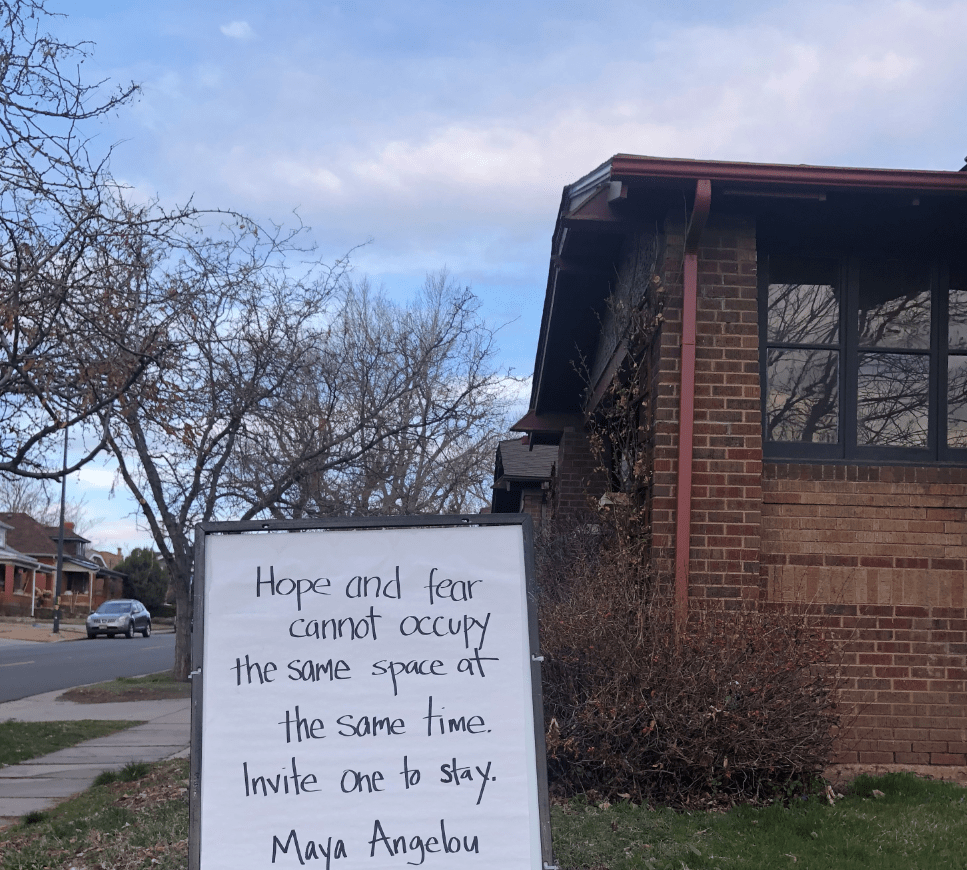
I reached a 90-year-old family member by phone on his first day under a stay-at-home order. I was taken aback when he broke into a story about his mother going through nursing school in New York City during the 1918 flu pandemic. He went on to describe what daily life was like in the US while WWII was being fought abroad. He didn’t sound worried about COVID-19, despite his age and a heart condition that puts him in the highest risk category for contracting the virus. He was taking it seriously, though. And while he had no plans to violate the order, his experiences with dire times decades ago seemed to give him a sense of confidence that we would make our way to the other side of this one.
Many of us have learned, as we shared stories with friends and family, that we’re only a degree or two away from some of the greatest challenges humans have faced—if we haven’t already lived through one or two directly ourselves. As we stare down the latest challenge, COVID-19, I can’t help but notice the broad range of perspectives and experiences we bring to it.
If you were born before 1970, you qualify for full AARP member benefits. But that might be the one thing you have in common with fellow older adults in North Denver. Our experiences are noticeably varied, especially during times like the city’s recent stay-at-home order. Some have lived in the neighborhood for decades, amassing connections with extended family, church, neighbors and more. Some are isolated at home and perhaps confused about what is unfolding and whether it is safe to seek help. You might have “retired well” and moved into the neighborhood more recently, perhaps to be closer to grandchildren or to live in a bustling restaurant-dense area. And some of us haven’t quite retired and are facing layoffs or dramatic drops in income. These examples scratch the surface.
Across the neighborhood many older adults are adjusting to a wide range of new daily routines that involve taking pilates and tai chi classes on Zoom or YouTube, “seeing” friends and family online instead of in-person, and starting interesting new relationships with TV, food, social media, the news, and work, not to mention greatly deepened relationships with hand soap and perhaps even the people we live with or near. Life is different.
And yet for others, keeping the routine as close to it was before coronavirus has been key. Stacie Naslund, executive director at Spring Ridge Park, a neighborhood assisted living memory-care community, points out that people living with dementia aren’t able to adapt easily to change, nor should they have to. She and her staff are working to maintain daily routines, filtering out as much of the daily news as they can. Residents have been told that they are spending time with loved ones via video calls, instead of receiving visits, because “there’s a bad flu going around.” Some in the community are taking it in stride; for others it’s disorienting.
Staff at Spring Ridge Park have found a silver lining: they have had more time with residents and each other and are bonding on a different level. Families, for their part, are getting creative to lift loved-ones’ spirits and to send encouragement to the facility’s staff: Spring Ridge Park has received deliveries of 20 pints of ice cream, pizza and salad from Edgewater Inn, and even distillery-crafted hand sanitizer.
Organizations in the community charged with supporting older adults have found themselves adjusting rapidly. “We want to make sure our members—and others—have access to reliable information,” says Angela Cortez, state communications director at AARP, “especially during times when people might feel overwhelmed or frightened.” AARP has begun hosting a weekly Coronavirus Tele-Town Hall meeting for just this purpose. They have also launched AARP Community Connections, a tool for people to informally organize or find mutual aid groups.
The Alzheimer’s Association is experimenting with providing Caregiver Support Groups by telephone conference, and they are reaching out to constituents by phone and email to make sure people have the support they need to navigate the dramatic change in daily life.
Karen Black of the Senior Assistance Center, which provides emergency food and other services to low income seniors in and around Sunnyside, is reaching out by postcard to make sure neighbors know they are still open for appointments and have made changes to procedures to ensure clients stay safe while seeking support. They’re reaching out to other neighborhood organizations to see how they can adjust and respond together.
Cortez points out that there are many ways people can help during this crisis. AARP is supporting Meals on Wheels and spreading the word about the state’s COVID-19 response initiative, Help Colorado Now. If you’ve done well and have resources, now’s a great time to give back. But she made sure to emphasize, “Right now, please know that it’s enough to take care of yourself, to focus on keeping yourself healthy and on taking care of family and neighbors. It’s absolutely enough.”
AARP Weekly Coronavirus Tele-Town Hall
Thursdays at 11am MT, call toll-free 855-274-9507
aarp.org/coronavirus (English)
aarp.org/elcoronavirus (Spanish)
Alzheimer’s Association 24/7 Helpline
800-272-3900
Senior Assistance Center
Emergency support to low income seniors in North Denver
seniorassistancecenter.org
303-455-9642
client@seniorassistancecenter.org
2839 W. 44th Ave., Denver CO
Kathryn has lived in North Denver since around the time the Mount Carmel High School building was razed and its lot at 3600 Zuni became Anna Marie Sandoval Elementary. She teaches a SilverSneakers fitness class at Highland Senior Recreation Center and facilitates Simplified Pickleball and a Caregiver Support Group for the Alzheimer’s Association Colorado Chapter. Do you have story ideas for The Gray Zone? Email thegrayzone.denvernorthstar@gmail.com.

Be the first to comment